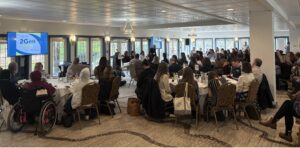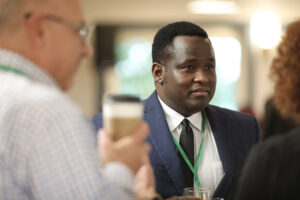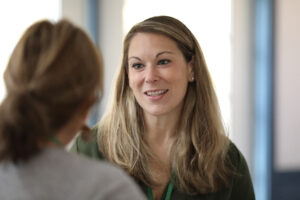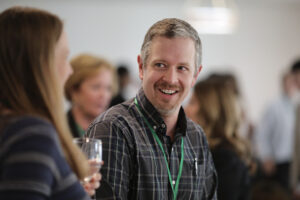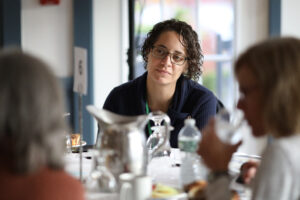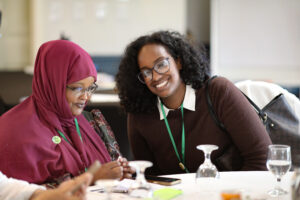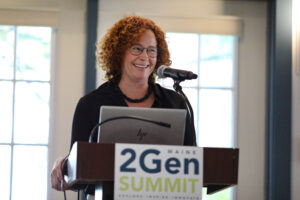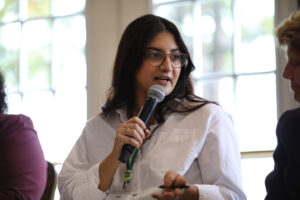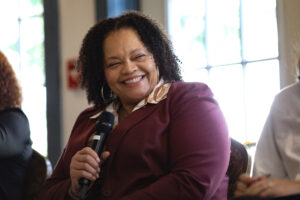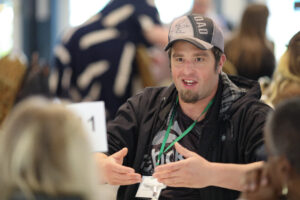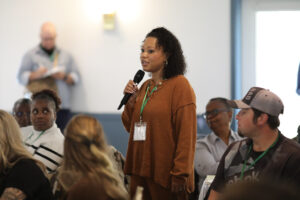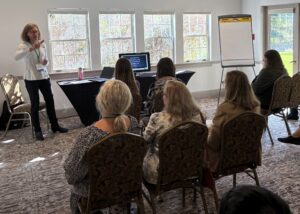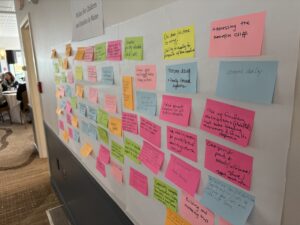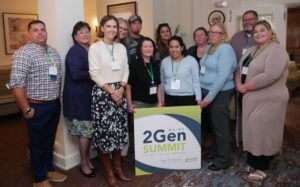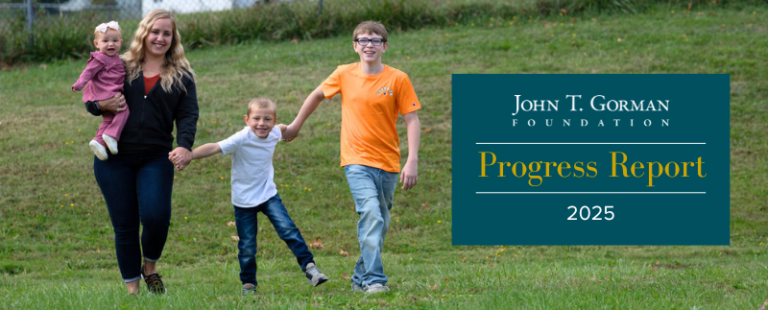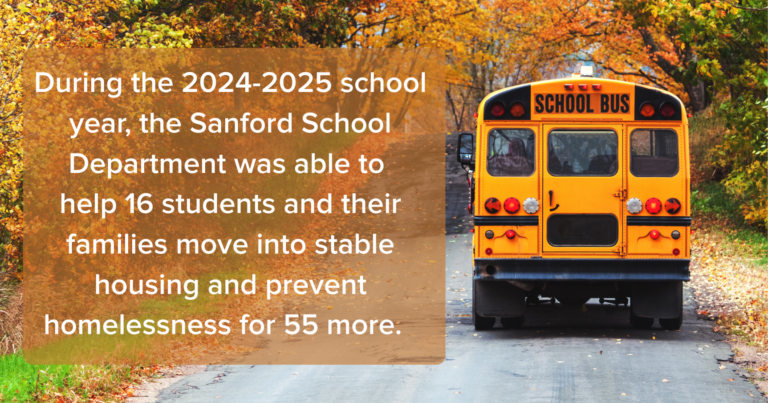John T. Gorman Foundation and Ascend at the Aspen Institute partner to convene Maine policymakers, practitioners, and parents
Challenging times often create the impetus to rethink how we work, collaborate, and identify new opportunities. That idea was at the heart of the Maine 2Gen Summit held in Freeport on October 23, where national perspectives and local innovations came together to show that two-generation strategies to serve children and their families can not only endure in this moment—they can thrive. More than 140 attendees, including lawmakers, agency leaders, nonprofit partners, national experts, and parent advisors, left with tools and connections to help drive that progress.
In holding its second summit with 2Gen expert Ascend at the Aspen Institute, the goals of the John T. Gorman Foundation were to highlight innovative strategies that are making a difference for children and their families, connect those leading this work, and spark discussions on how we can collaborate to strengthen and expand those efforts.
“There is a way forward and it going to take all of us,” Foundation President & CEO Nicole Witherbee said in her opening remarks. “Not one organization, no one person can do it alone. But with connections and partnerships, expertise and commitment, we can make a difference. I believe that using the two-generation approach is a great way to focus that work.”
Photo Gallery
Shifting Landscape
The morning plenary explored how partners across the country are continuing to advance two-generation strategies – in practice and policy – while navigating a shifting landscape.
Melvette Hill – Executive Director of the Connecticut General Assembly’s Commission on Women, Children, Seniors, Equity & Opportunity – said recent policy developments sent nonprofits and agencies to their separate corners at first. “But since then people have come out. It’s cold and snowing, but we’ve built a fire. People are coming back to the fire, and contributing in big or small ways as they can,” Hill said. Likewise, in her state, policymakers are coming back together to advance their common goals for families.
Ascend at the Aspen Institute Senior Program Manager Sama Sabihi said 2Gen practitioners continue to make headway as well. “There’s a lot of momentum right now,” she said, as Ascend is working to codify best practices from 15 organizations across the country.
2Gen Roadtrip
After morning policy sessions, Keynote Speakers Raquel Hatter, Managing Director of Human Services at The Kresge Foundation, and Tiffany Day of Daylight Solutions, highlighted impactful 2Gen work happening across the country by taking the audience on a “road trip” of innovative programs.
Stops along the way included:
- Michigan: the Michigan Department of Health and Human Services and the Michigan Federation of Children and Families have partnered to launch MiFamily Together. With a 2Gen approach, the program delivers family preservation programming that is responsive to each family’s needs whether they are in crisis, need extra support to avoid out-of-home placement, or have children returning home from foster care.
- Tennessee: Our Chance TN offers a combination of whole-family coaching and transitional benefits to help families over the benefit cliffs that keep them from moving forward. The initiative is administered by the Tennessee Alliance for Economic Mobility.
- Maryland: In Baltimore, the Center for Urban Families is implementing the Developing All Dads for Manhood and Parenting (DADMAP) curriculum to assist non-custodial fathers in building their fatherhood knowledge and skills.
Maine Innovations
After traveling across the country, participants journeyed across the state in the afternoon sessions, learning more about two-generation innovations happening in all corners of Maine. Sessions touched on many topics, including:
- Improving early childhood supports through whole-family approaches
- Bringing two-generation strategies to Wabanaki and immigrant communities
- Partnerships between schools and community providers to help students thrive
- Supporting parents through post-secondary education, workforce, and economic connections
The day also included table conversations with questions by parent leaders and wrapped up with participants making individual action commitments.
“I hope you leave feeling energized, connected, and empowered as you go back to your important work,” Witherbee said to close the summit.

